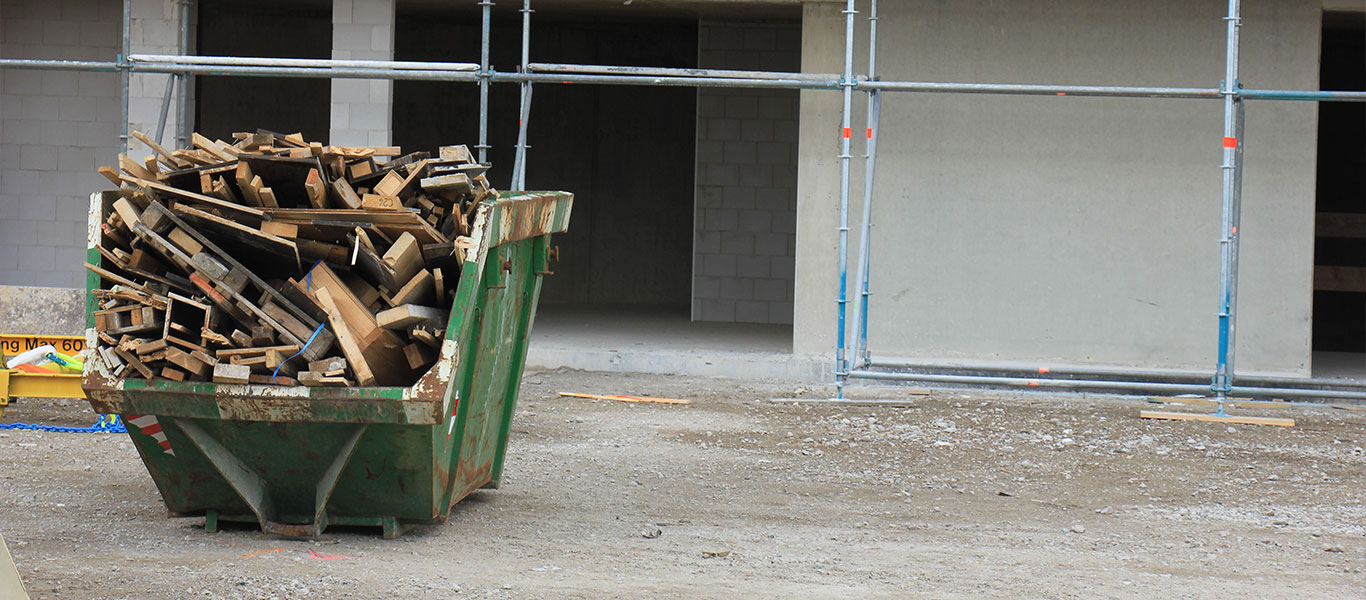Roughly half the raw materials extracted from the planet every year go into the world’s built environment. Much of this becomes waste, where the construction industry is responsible for an estimated third of the world’s overall waste.
Today, most of that waste ends up in the landfill, where it may be out of sight but stays lurking deep in your budget, costing you more year-on-year.
With more focus than ever on companies’ corporate responsibilities to the environment, there’s never been a better time to take control of your construction waste. Here are three reasons to revamp your construction waste management plan.

1. FIND NEW OPPORTUNITIES TO SAVE MONEY
While the construction industry is no stranger to finding ways to save on costs without cutting corners, it hasn’t been more difficult to achieve in the past forty years. While supply chains struggle to fulfil demand, Consumer Price Index (CPI) indicators globally record annual price increases above 5% with no end in sight to the increases.
With supply chains fighting to meet demand, the construction industry is faced with controlling costs to prevent the collapse of building works, despite costs and availability of materials and labour being out of their control.
Waste management, however, is within builders’ control, and there are real differences to be made in the industry, particularly in recycling. Recycling can help to:
- Increase the use of recycled materials in construction (often at a lower price point)
- Reduce the cost of raw materials by using less virgin material
- Lower landfill use fees, including disposal and transportation costs
Recyclable construction materials may surprise you, but can include:
- Metals
- Glass and plastic
- Paper and cardboard
- Wood and untreated timber
- Asphalt and concrete
- Masonry
- Vegetation and trees
- Appliances, fixtures, windows, doors, and roofing
2. SUBMIT STRONGER, ACCURATE BID
Accurate bidding is an art and a science that you need to master. While a solid bid always starts with site visits and inaccurate takeoffs, you’d be surprised at how your overall bid could be impacted by seemingly small line items.
The goal of your bid is to produce an estimate that is resource efficient, but if you aren’t fully aware of your waste costs you can’t be truly resource efficient – by evaluating your waste management plan, you will not only be able to better track and predict wastage allowance, you’ll even be able to pass on savings to the customer that could ultimately set you apart from the competition.
3. PROTECT YOUR LOCAL ENVIRONMENT AND BRAND REPUTATION
Consumers across the world are adapting and becoming more vocal about sustainable lifestyle choices every year. The Global Sustainability Study 2021, from Simon-Kucher & Partners, showed that 85% of people globally have shifted their purchase behaviours toward being more sustainable in the past five years. You might think that sustainability trends start and stop with the choices people make on the high street, but we’re not far away from the surge in environmental awareness impacting the construction industry. According to the same 2021 study, global attitudes towards the construction/home industry suggest sustainability is already an important consideration, with 66% of respondents highlighting the concern.
Sustainability requires more than solar panels and insulation: it also requires the business itself to be responsible in reducing its own carbon footprint. These actions could be as simple as reducing the number of vehicle movements through compacting or baling waste. As consumers become better informed and better equipped, those players who adopt sustainable practices, from sourcing to waste management, are more likely to take an early lead in an already eager market.
YOUR WASTE COULD TRANSFORM YOUR COMPANY
Whether it’s reducing costs today or improving bids or your company image tomorrow, construction waste is one of the few factors almost solely in your hands in the race to become sustainable.
LSM is your construction company’s partner in waste management and recycling. Get in touch to learn more about how our balers can help streamline your construction waste disposal.


